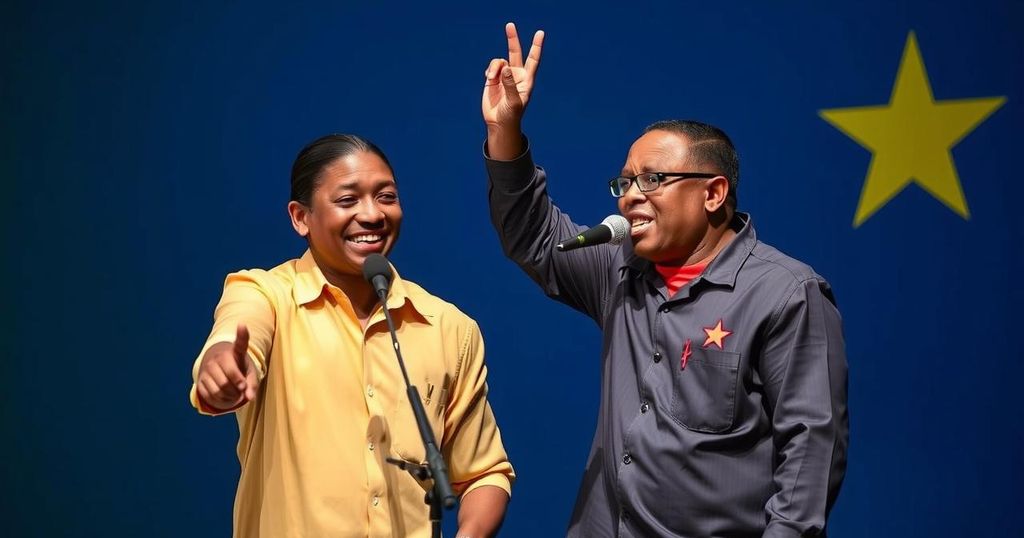Mauritius Opposition Coalition Achieves Landslide Victory in Elections
Mauritius’ opposition coalition has won a decisive victory in the recent elections, securing all parliamentary seats and ending the administration of Prime Minister Pravind Jugnauth. This political shift marks the return of former Prime Minister Navin Ramgoolam to leadership amid widespread public discontent and allegations of corruption against the outgoing government.
In a significant political shift, the opposition coalition in Mauritius has achieved a remarkable victory in the recent elections, winning all parliamentary seats and thereby ousting the incumbent government led by Prime Minister Pravind Jugnauth. The results, announced throughout Monday, confirmed that the ruling Militant Socialist Movement coalition failed to capture any of the 62 directly contested seats across the nation’s 21 constituencies. Prime Minister Jugnauth conceded defeat prior to the final tally, acknowledging the overwhelming support for the opposition, which is set to bring back former Prime Minister Navin Ramgoolam to power, having previously held the position from 1995 to 2000 and again from 2005 to 2014. Prime Minister Jugnauth’s administration, in office since 2017, faced significant backlash amid allegations of corruption, exacerbated by leaked recordings of political figures and businesspersons. Despite aiming for re-election, his coalition’s popularity dwindled, leading to this unexpected election outcome. Official results, including additional seats from Rodrigues Island, are anticipated on Tuesday, although the opposition has decisively claimed 60 seats thus far. The parliament will ultimately accommodate a total of 70 seats after eight additional members are nominated by the Electoral Supervisory Council. Mauritius, a nation renowned for its democratic stability and progressive economy, has conducted its 12th election since gaining independence from the United Kingdom in 1968. With over a million registered voters participating in the elections, this landslide reflects a decisive shift in the political landscape, signifying public disapproval of the incumbent leadership.
The political dynamics in Mauritius have undergone substantial changes with the recent elections reflecting a strong voter sentiment against the ruling coalition led by Prime Minister Pravind Jugnauth. The country has a history of stable democratic processes and economic development, particularly in sectors such as finance, tourism, and agriculture. However, the emergence of corruption allegations within the government has catalyzed public dissatisfaction, motivating voters to seek a shift in leadership. This election marks a pivotal moment as it reinstates Navin Ramgoolam, a seasoned political figure, into the prime ministerial role. The electoral framework involves direct voting for parliamentary seats, and with a significant number of voters engaged, this election serves as a testament to the active political participation among the Mauritian populace. The expected continuation of democratic governance will be closely observed as the new coalition navigates the challenges ahead.
The recent elections in Mauritius represent a dramatic rejection of the current administration, with the opposition coalition winning all contested seats, reflecting a call for change and accountability from the electorate. With Navin Ramgoolam’s return as prime minister, the new government will need to address the critical issues that resonated with voters, particularly those related to governance and transparency. The implications of this electoral outcome could reshape the political landscape in Mauritius, signifying a definitive shift towards renewed leadership and direction for the nation.
Original Source: abcnews.go.com




Post Comment